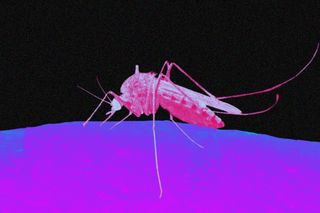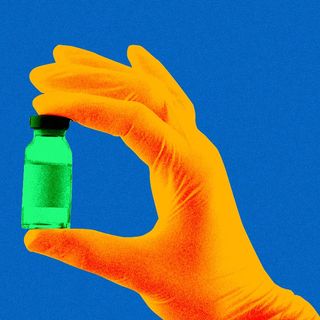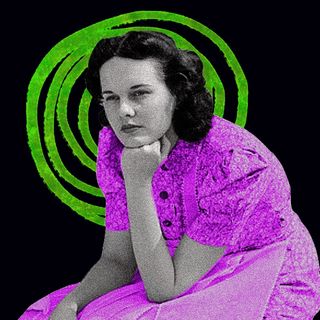
Some Tropical Viruses Make People Smell ‘Tastier’ to Mosquitoes, Finds Study
Dengue and Zika viruses make scents of infected people more attractive to mosquitoes, who bite them, and pass the virus to their next victim.

Dengue and Zika fevers — both caused by tropical viruses — alter the scent of infected people, making them smell “tastier” to mosquitoes, according to new research.
This discovery isn’t just a random scientific nugget one must remember to score well on quizzes, or show off how vast and amazing their knowledge of trivia is. Instead, the finding is a rather ominous one — turns out, that by making infected people smell more appealing, the viruses deviously facilitate their spread.
As a tropical country, India has witnessed concerning outbreaks of both viruses. Naturally, then, the study is extremely relevant to the Indian sub-continent. Dengue can turn fatal; Zika can lead to fatal brain damage. Worldwide, 50 million new cases of dengue are estimated to occur each year. While the prevalence of Zika is lesser, it has been linked to the occurrence of a rare auto-immune disease called the Guillain-Barre syndrome, where the body’s immune system attacks its own nerves, spreading quickly and, in some cases, resulting in paralysis.
The infections spread through communities through the bites of infected mosquitoes — the Asian tiger mosquito (Aedes albopictus) and the yellow fever mosquito (Aedes aegypti). Now, courtesy of the new study published in the journal Cell, we know what catalyzes the transmission. Infected humans — and mice too — ooze a “compound that’s like catnip to mozzies,” in the words of ABC News. And so, the “mozzies” bite them, drink their infected blood, and fly off to spread the virus onto their subsequent unsuspecting victims.
Related on The Swaddle:
Florida Approves Controversial Plan to Release 750 Million Genetically Modified Mosquitoes
“The virus can manipulate the hosts’ skin microbiome to attract more mosquitoes to spread faster!” said study author Penghua Wang, an immunologist at the University of Connecticut. Wang, along with other researchers, performed the study on both mice and humans.
In infected mice, the researchers found 20 compounds present in abnormally high levels. Out of them, three compounds — acetophenone, decanal, and styrene — were found to activate the strongest responses from mosquitoes, with acetophenone turning patients into a “mosquito magnet” of sorts. Upon collecting swabs from the armpits of dengue patients, the researchers found the incriminating compound present there too. And when the armpit extracts were rubbed onto the hands of study participants, mosquitoes were attracted to them like moths to a flame.
“The dengue patient odor attracted more mosquitoes than the control,” noted Wang. The finding points to a vicious cycle of infection that has, perhaps, existed for decades but somehow evaded human knowledge.
But there may be a way to break out of this cycle. “We are very excited to identify acetophenone from host skin microbiota as the targeted volatile compound to manipulate the feeding motivation of mosquitoes,” remarked study author Gong Cheng from Tsinghua University School of Medicine in Beijing, China. Cheng’s elation isn’t misplaced, although it may certainly come off as that.
Related on The Swaddle:
Scientists Discover a Microbe That Protects Mosquitoes Against Malaria
Basically, now that scientists have been able to pinpoint the exact compound that makes infected individuals smell “delicious” to mosquitoes, they can focus on ways to reduce its magnetic effect on the flying creatures.
Upon being administered a vitamin A derivative — isotretinoin, which is otherwise used to treat cystic acne — the scent of infected mice was found to contain less acetophenone, making them less attractive to mosquitoes, and potentially reducing the chances of transmission.
Now, the researchers are trying to find out whether isotretinoin can impact infected human beings similarly. Potentially using it as a preventative, though, is replete with challenges. As Cheng explained, “Although isotretinoin has been widely clinically used for curing acne or other bacterial skin infections, oral administration of isotretinoin may cause risk of neuropsychiatric symptoms in humans… we are in discussion with our collaborators in Malaysia to select a safe and suitable vitamin A derivative for the following clinical investigation.”
So, while we may not have a solution yet, we’re getting there. In the meantime, TIL a critical pattern of infection spread: that some viruses can make us smell “tasty” to mosquitoes, making communities more vulnerable to dengue and Zika, and that an anti-acne medicine might potentially be our savior. Well, that’s enough internet for now.
Devrupa Rakshit is an Associate Editor at The Swaddle. She is a lawyer by education, a poet by accident, a painter by shaukh, and autistic by birth. You can find her on Instagram @devruparakshit.
Related


Indian‑Origin Woman With Just Months To Live Was Declared Breast Cancer‑Free After a New Drug Trial
